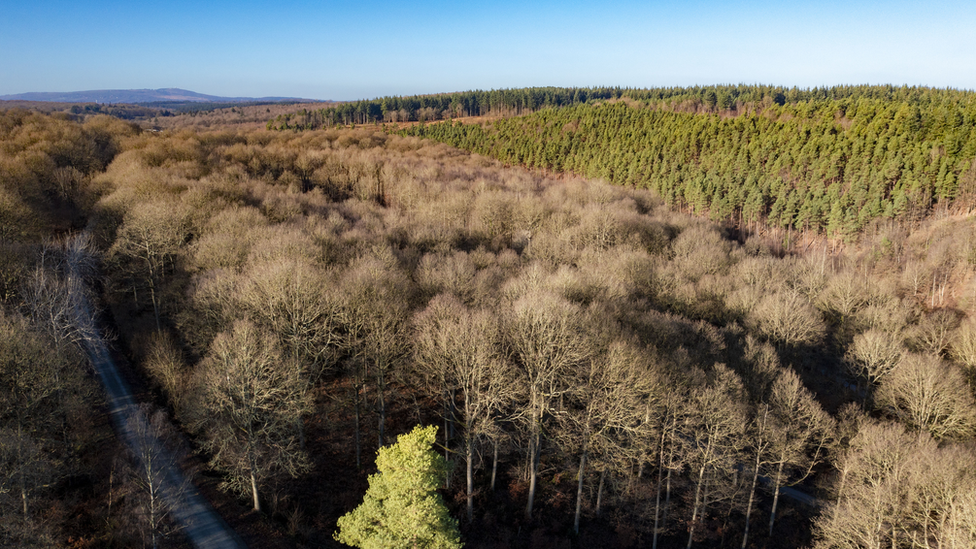Somerset Levels 'super nature reserve' to be created
- Published
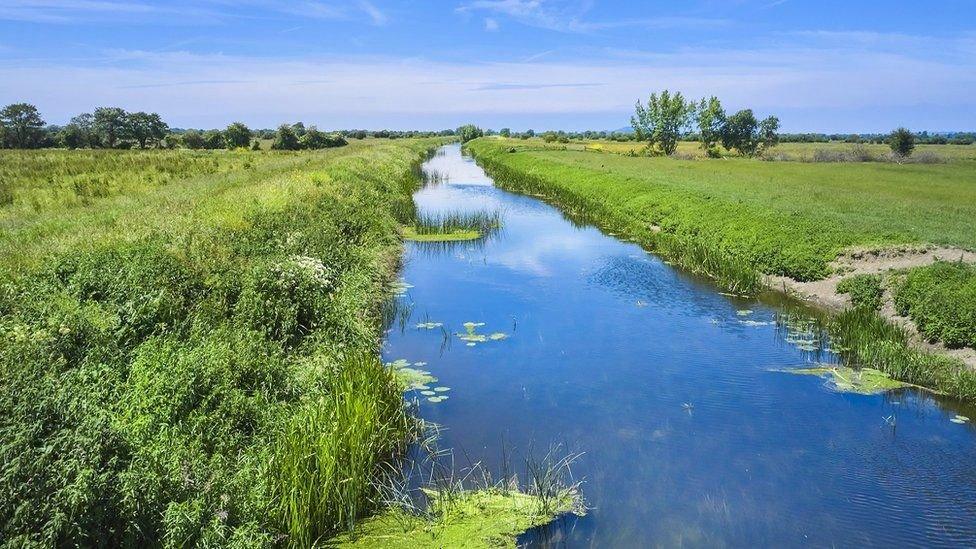
The Somerset Wetlands reserve is only the second "super" National Nature Reserve to be designated in England
A "super nature reserve" is being created across 15,000 acres of the Somerset landscape to protect saltmarsh, heath and wetland habitats.
Natural England has announced a new Somerset Wetlands National Nature Reserve (NNR) in an area home to rare and threatened species.
The Somerset Levels, moors and coast are a significant site for insects, including the hairy dragonfly.
The area is also home to the UK's second largest spider, the raft spider.
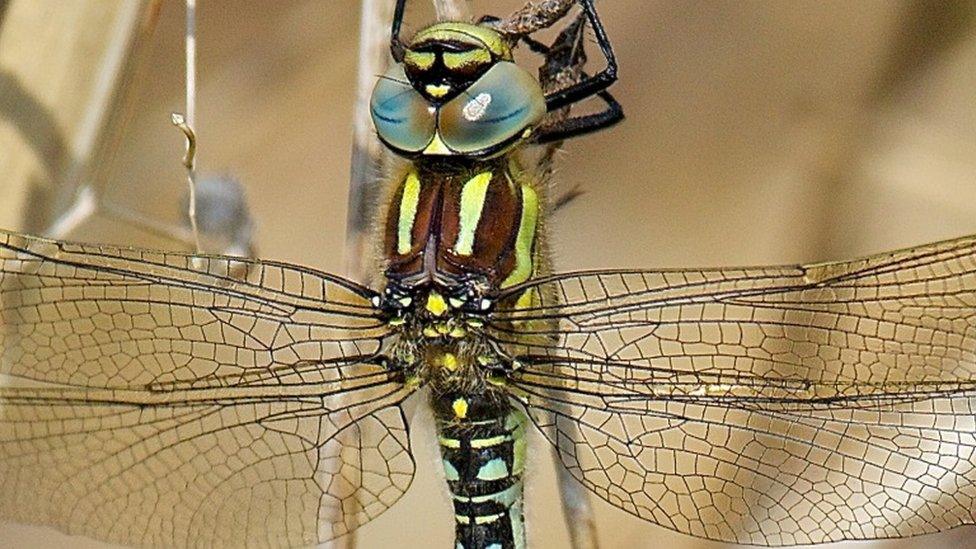
The Hairy Dragonfly is one of the many insects that can be found on the Somerset Levels
The move brings together six reserves and other land managed for nature by organisations including Natural England, the RSPB, Somerset Wildlife Trust, Wildfowl and Wetlands Trust, National Trust, Hawk and Owl Trust and the Environment Agency.
The Somerset Wetlands reserve is only the second "super" NNR to be designated in England, following Purbeck Heaths in Dorset, in 2020.
It comes on the 70th anniversary of the creation of England's first nature reserve and is part of efforts to create a national "nature recovery network".
"The creation of this very large National Nature Reserve is an important moment for nature recovery in England," said Tony Juniper, chairman of Natural England.
"This is not least because it presents a practical demonstration of what can be done by working in partnership across the landscape at scale to reverse nature's decline."
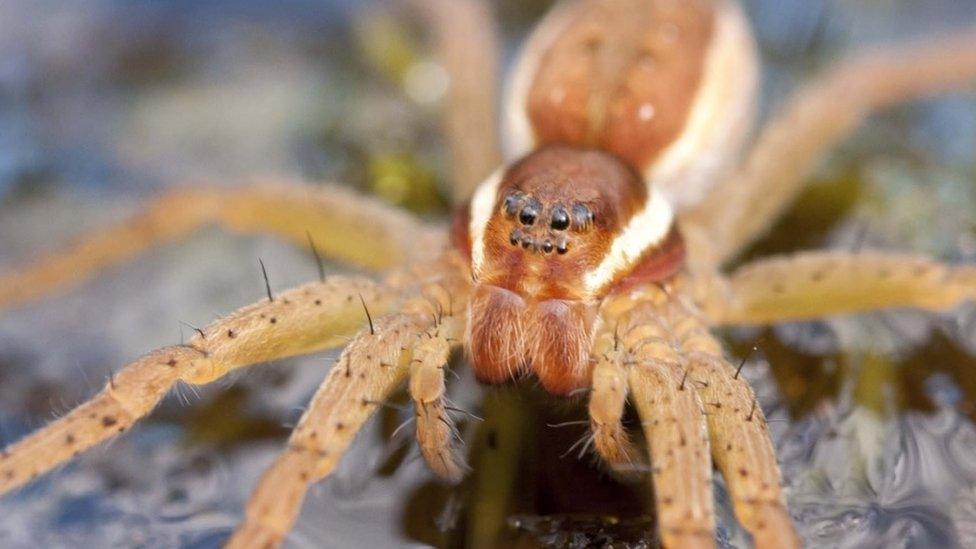
The Somerset Levels is home to the Raft Spider, the second largest spider in the UK
There are more than 200 NNRs designated by Natural England across the country in areas recognised as having rare and precious wildlife and geology.
"Super National Nature Reserves provide a great opportunity to engage a wide range of people to tackle some of the issues affecting our nature reserves that need action to be taken at a landscape scale," said Craig Bennett, chief executive of The Wildlife Trusts.
"If we are to achieve nature's recovery, we need to create and restore wild places across the countryside, giving wildlife the chance it so desperately needs to spread and thrive."

Follow BBC West on Facebook, external, Twitter, external and Instagram, external. Send your story ideas to: bristol@bbc.co.uk , external
Related topics
- Published17 March 2020
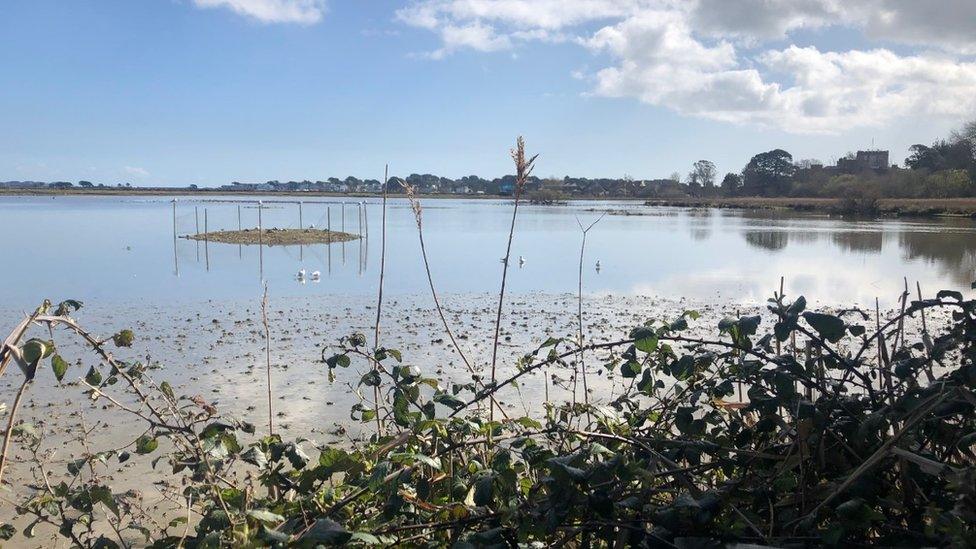
- Published2 July 2021
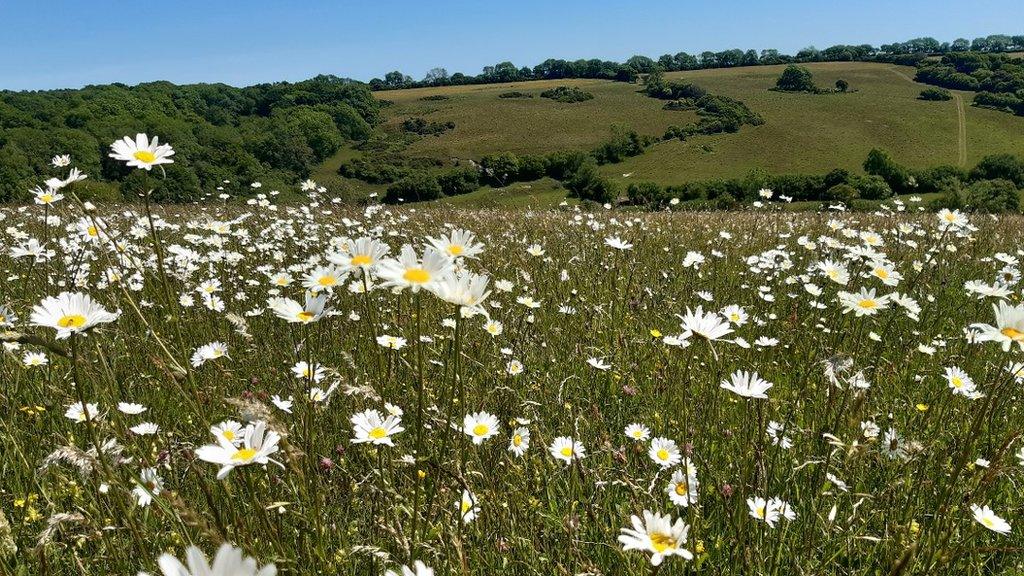
- Published1 February 2022
